METRO aims to improve its environmental performance in several ways. Our priorities: reduce our greenhouse gas emissions, manage our waste and reduce food waste.
Our ambition is to reduce our greenhouse gas emissions to limit global warming by focusing our efforts on key sectors over which we have direct operational control. Through these actions, we aim to contribute to the collective effort to transition to a lower-carbon economy.
Objective
For information on our key performance indicators, see our 2022-2026 Corporate Responsibility Plan

Our ambition is to reduce our greenhouse gas (GHG) emissions to limit global warming by focusing our efforts on key sectors over which we have direct operational control. Through these actions, we aim to contribute to the collective effort to transition to a lower-carbon economy.
To learn more
Fighting climate change
In 2023, METRO committed to set near-term company-wide GHG emission reduction targets in line with the Science Based Targets initiative (SBTi) standard. Since then, we continued our efforts to tackle not only emissions related to energy and industry but also our scope 3 emissions originating from “forest, land and agriculture” (FLAG) within our supply chain.
Our new near-term science-based targets, which have been submitted for validation to the SBTi, are the following:

To reduce our GHG emissions at a pace consistent with the level required to keep global temperature increases to 1.5°C, METRO has developed a decarbonization plan that encompasses all significant sources of emissions. This plan is divided into two infographics for our direct and indirect emissions.
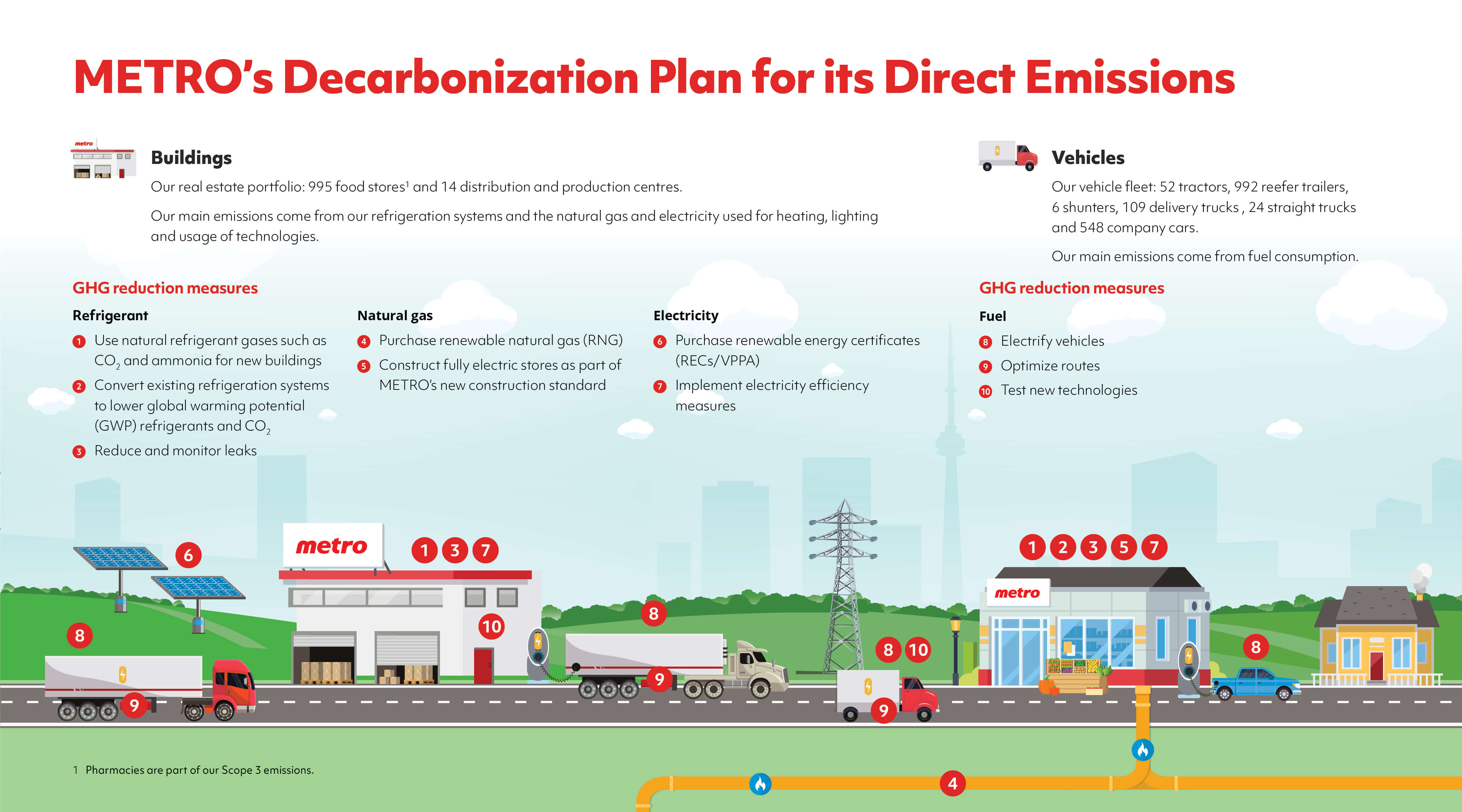
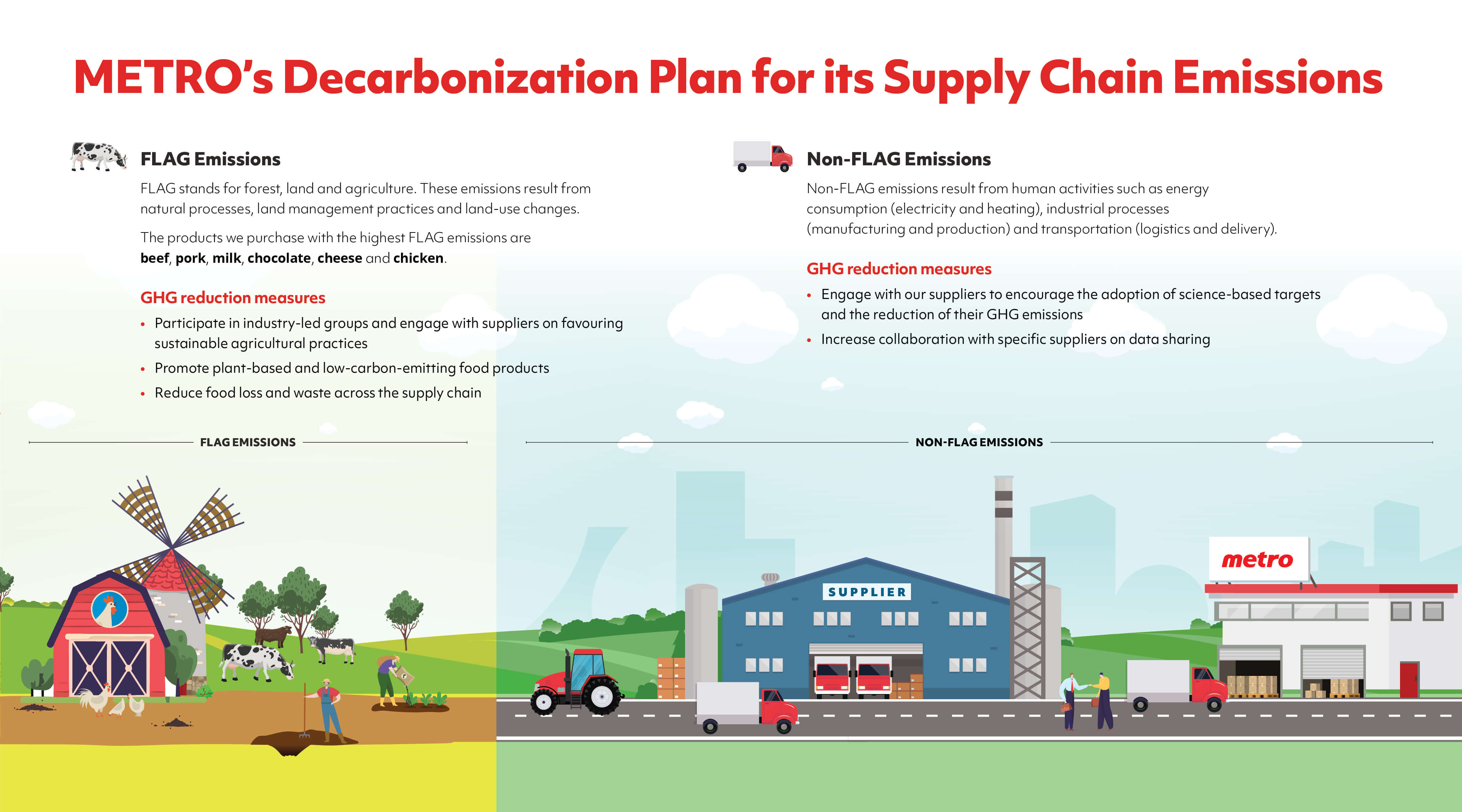
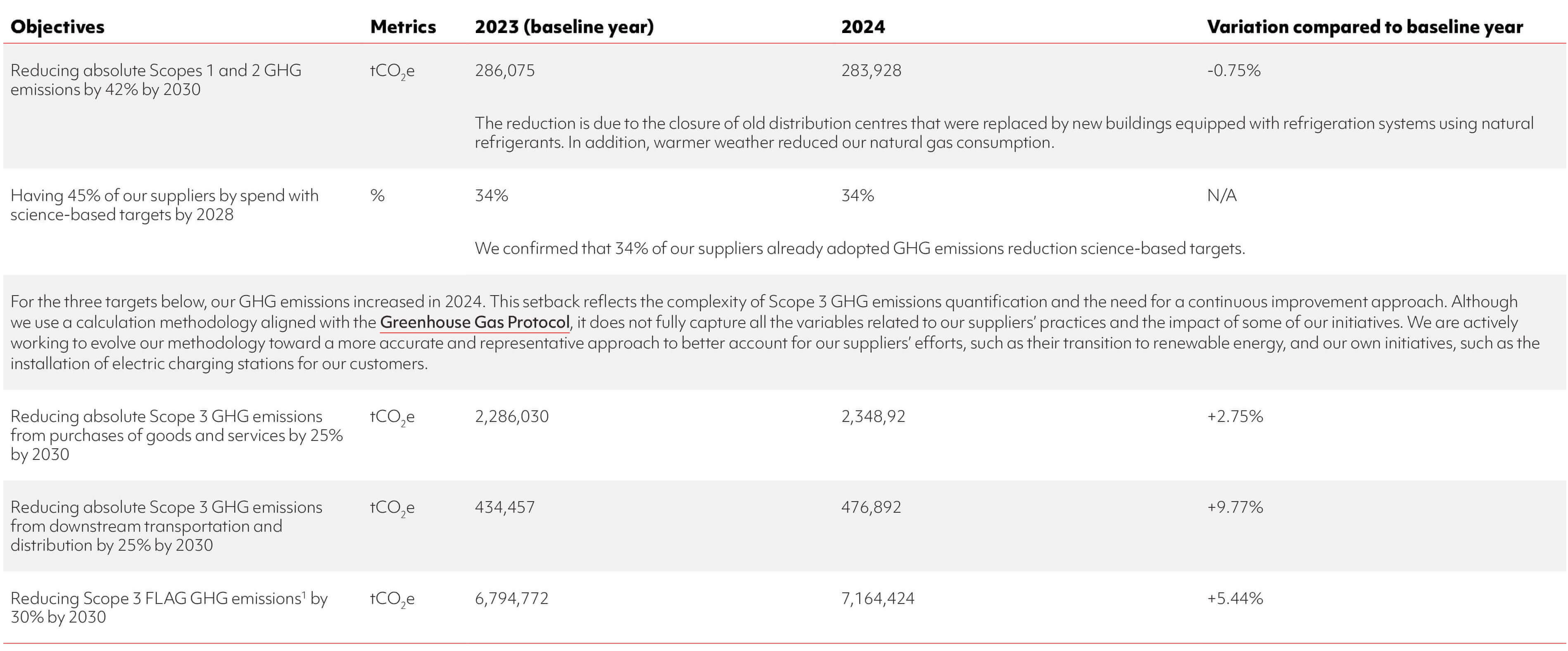
1 Scope 3 FLAG emissions are generated by the activities of the forest, land and agriculture sectors. For METRO, this means any land-based emissions and other biogenic emissions from food production activities at the agricultural level. For more information on FLAG emissions, please refer to https://sciencebasedtargets.org/resources/files/SBTi-FLAG-2-pager.pdf.
2024 GHG emissions details are available in our GHG emissions infosheet.

As a supporter of the Task Force on Climate-related Financial Disclosures (TCFD), we report our alignment with the 11 TCFD recommendations within our 2024 TCFD report. We developed an action plan to improve our understanding of climate-related risks and opportunities and align our reporting with the recommended guidelines.
To learn more, see our Corporate Responsibility Report 2024 (PDF).
In 2024, we undertook several initiatives to reduce our Scope 1 GHG emissions, focusing on transitioning to low-carbon transportation.
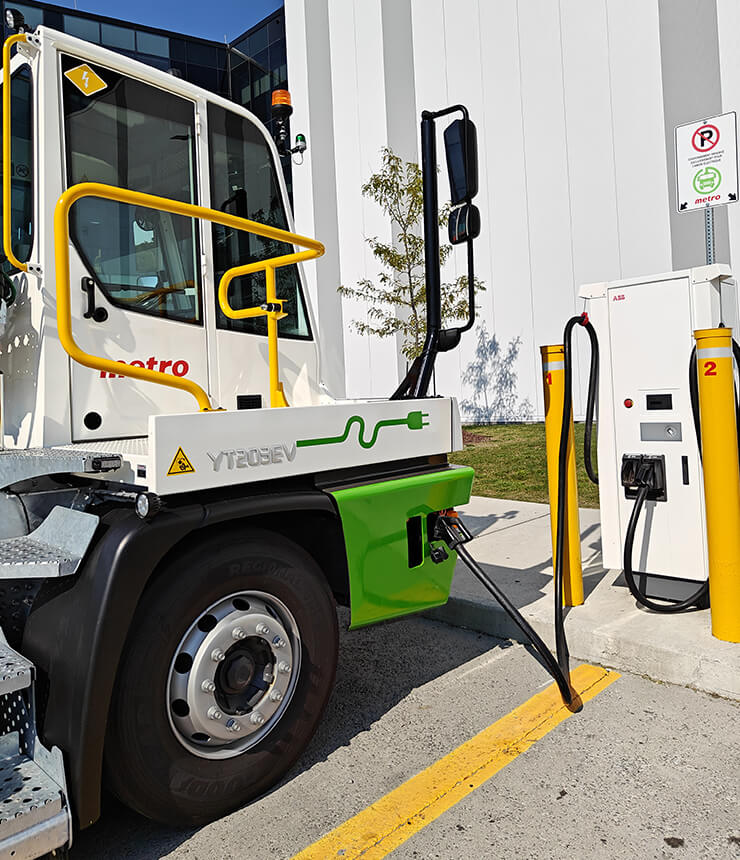
METRO recognizes that biodiversity is facing a global decline, largely due to human activities. Changes in land use, pollution, climate change and population growth threaten biodiversity, which is essential to the functioning and resilience of ecosystems and therefore vital to human health and well-being.
Our Biodiversity Statement defines our criteria and recommended practices according to four priority environments where our operations can have an impact.
Our ambition is to avoid sending waste generated by our activities to landfill with the view to achieving zero waste at our locations, representing a diversion rate of at least 90%. We intend to enhance our performance by mobilizing our teams to optimize our operational practices.
Objective
For information on our key performance indicators, see our 2022-2026 Corporate Responsibility Plan

Our ambition is to avoid sending waste generated by our activities to landfill with the view to achieving zero waste at our locations, representing a diversion rate of at least 90%. We intend to enhance our performance by mobilizing our teams to optimize our operational practices.
To learn more
Our waste management program aims to reduce the environmental impacts of eliminating residual materials, including GHG emissions, and facilitate their valorization.
The waste objectives related to diversion are divided into two targets: one for stores and one for distribution and production centres. We aim for all stores to achieve at least 50% diversion, 25% of stores to achieve 80 to 89% diversion, and 25% of stores to achieve zero waste. As for our distribution and production centres, we aim to achieve zero waste. Key to diversion are our recycling, recovery and source reduction programs.
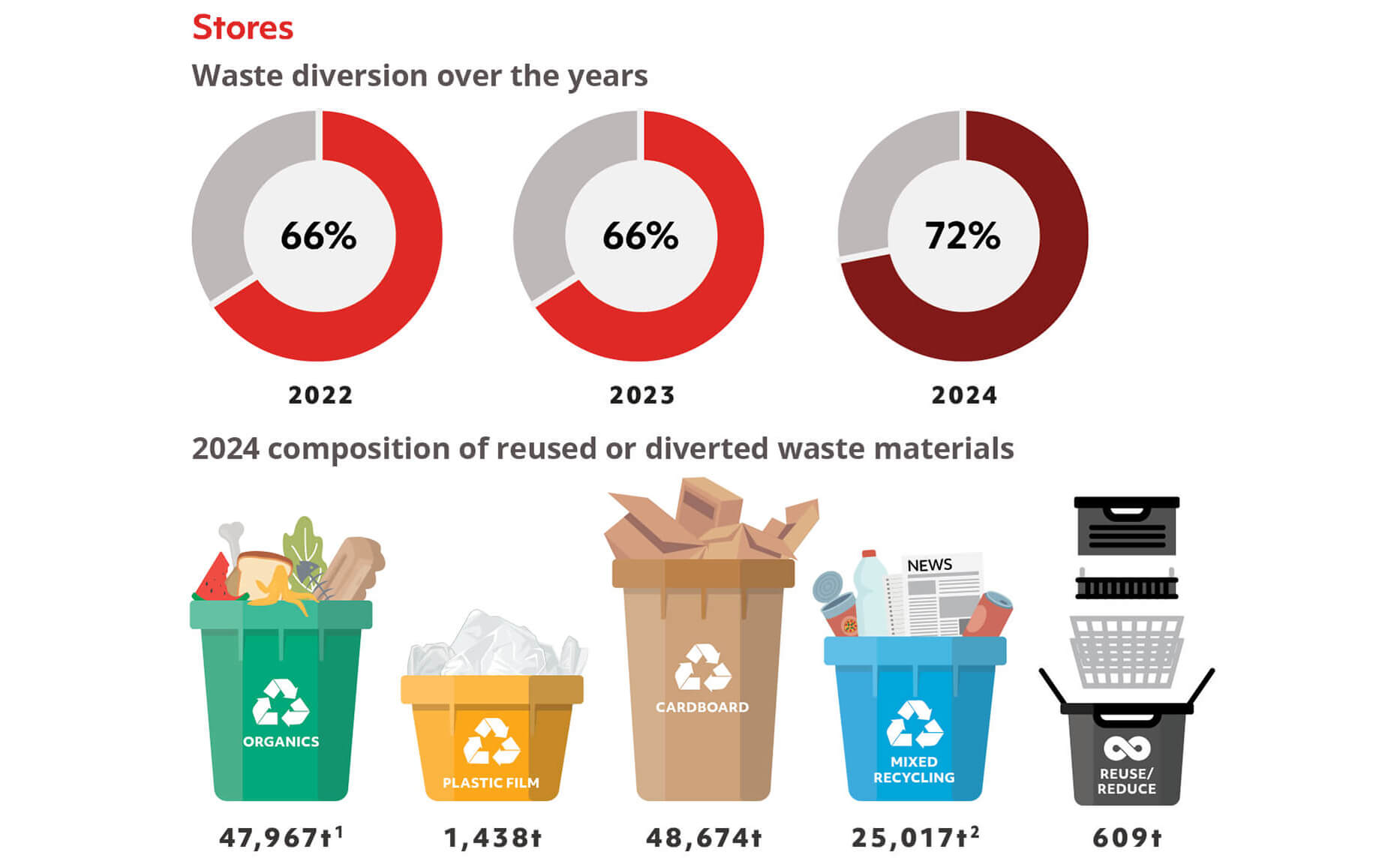

In 2024, our overall store diversion rate reached 72%, reflecting a 6% increase from 2023. Our distribution and production centres reached 82%, up 11% compared with 2023.
We continue to look for other ways to divert unsold food from landfills when it cannot be donated for human consumption. This year, we expanded our Animal Feed program to include additional wildlife rescue centres and zoos in Ontario and Québec. We also extended our partnership with Loop Resource in Ontario so that even more stores are donating food that is used as feed for farm animals.
The Animal Feed program earned METRO a Canadian Grocer Impact Award in Sustainability and secured a finalist spot for the Retail Council of Canada Environmental Leadership Award.

For more details on our methodology and performance, please refer to our Waste Diversion infosheet.
Our ambition is to ensure that food that is safe for consumption and food residue generated by our activities are not thrown away. By redistributing them to organizations or giving them a second life, we are helping to address food insecurity and reduce the GHG emissions caused by landfilled organic waste.
Objective
For information on our key performance indicators, see our 2022-2026 Corporate Responsibility Plan

Our ambition is to ensure that food that is safe for consumption and food residue generated by our activities are not thrown away. By redistributing them to organizations or giving them a second life, we are helping to address food insecurity and reduce the GHG emissions caused by landfilled organic waste.
To learn more
This is METRO's commitment to tackling two major challenges for society:
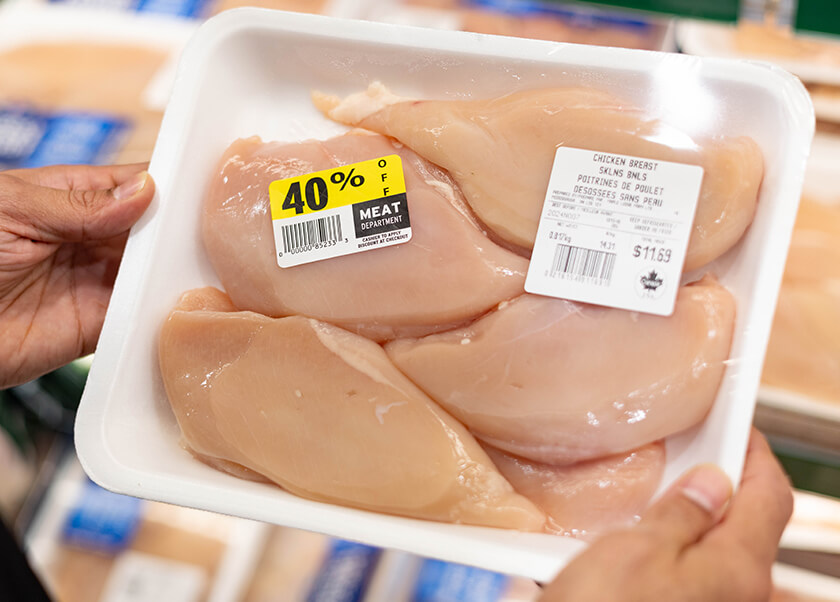
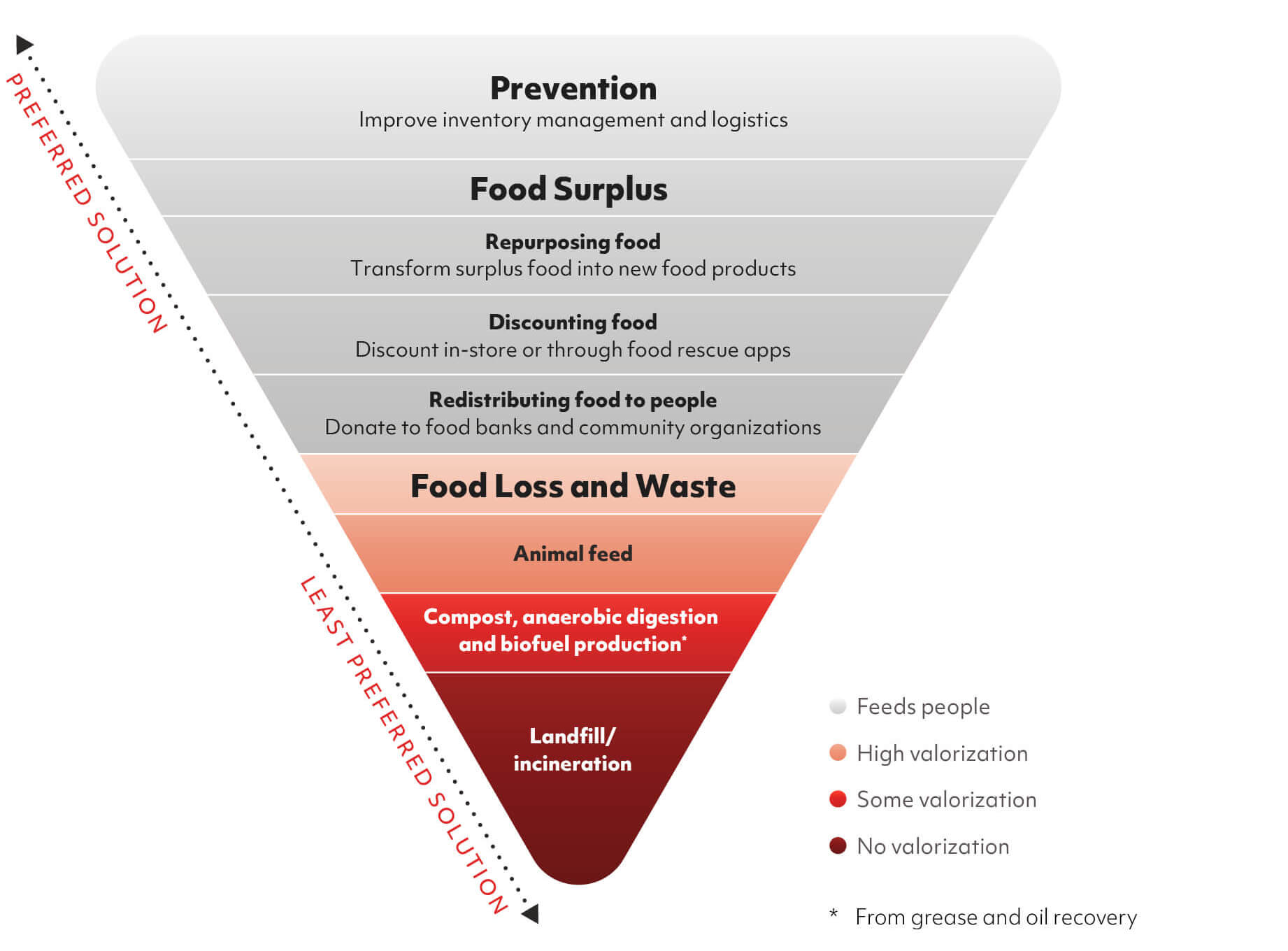
Our methodology is aligned with the Food Loss and Waste Accounting and Reporting Standard, which states that food is only considered to have been lost or wasted if humans do not consume it.
As a food retailer, ensuring food reaches our customers is our core business; therefore, our food loss and waste reduction efforts focus on ensuring food gets eaten by people by selling it at a discount in-store or on food rescue apps, repurposing it in meals prepared in-store or donating it to our One More Bite partners.
For more details on our methodology and performance, please refer to our Food Loss and Waste infosheet.
To consult our environmental reference documents, click here.